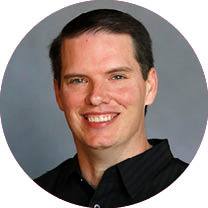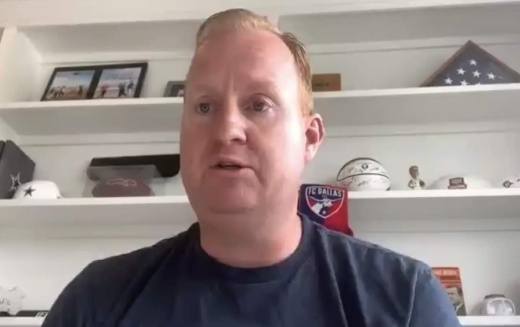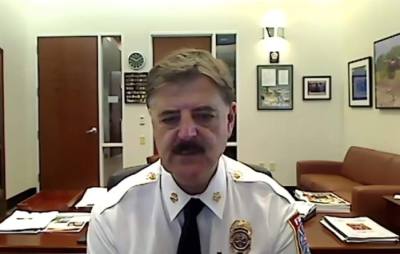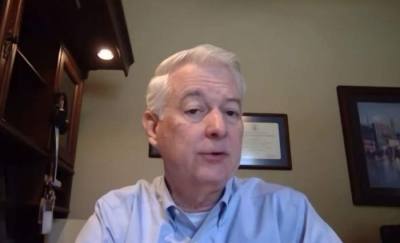Mayor Jeff Cheney, Frisco Economic Development Corp. President Ron Patterson and Frisco Fire Chief Mark Piland discussed the reopenings that have taken place and plans for the next phase during a virtual conversation hosted by the Frisco Chamber of Commerce on May 12.
“I've been super proud of the business community all going above and beyond what is being asked of them,” Cheney said. “They know very well that for them to survive, and for them to come out of this quicker that they have to earn the respect and the trust of the public.”
Piland credited the “Open Frisco at a glance” document put together by city staff as helping the first phase of reopenings run smoothly. The document includes details on which kinds of services are allowed to operate and has a tool for businesses to calculate their capacity.
“Last weekend was a weekend of zero [in Frisco],” said Piland, who also serves as the city’s emergency management coordinator. “We had zero businesses call [the Emergency Operations Center], we had zero complaints about any business, and we had zero positive [COVID-19] cases in Frisco.”
Tracking local data
Cheney said the business and restaurant reopenings in Frisco have had a negligible effect on the city’s number of active cases.
“Our active cases and net active cases have been tracking along the exact same lines as the weeks prior to the reopenings,” Cheney said. “We've really seen no statistical change in our numbers with being open.”
Still, Frisco’s emergency management division is watching case numbers and hospitalizations closely, Piland said.
“We will be the first ones to let the mayor and our city management know if there's a tick up in cases to a point where they should be concerned,” Piland said.
In addition to monitoring the health and welfare of the community, Patterson said the city is also tracking the economic impact and recovery of Frisco.
“All that data is being catalogued and put together to be able to then graphically show what the impacts have been, as these stages start to come along and we're reopening,” Patterson said. “If we can tie those together graphically, that it will be a very, very useful tool.”
He said business has also started to pick up at FEDC with both new inquiries and the return of some inquiries that had been put on hold. Businesses often used to ask about things like mass transit, but FEDC is now getting inquiries about issues related to social distancing, Patterson said.
“It has been pretty interesting to see some of those dynamics change,” Patterson said. “I think at the end of the day, [in] the state of Texas in particular and Frisco as well as the suburban areas, you're going to see, actually, a resurgence of interest.”
In addition to helping track cases, Piland said the Emergency Operations Center has been working with private medical practices to get them personal protective equipment from the state.
“I'm happy to report that they're turning that around pretty fast,” Piland said. “Our job is to kind of get you through the first week or two, and then get the state to supply the physicians so we can get the care out there.”
Next phase of reopening
Looking toward phase two of the governor’s reopening plan, Cheney said he is hopeful the summer months will see things return more to normal.
“People are going to start going back to work, and we're going to start feeling the sense of normalcy,” Cheney said. “We're really hopeful by about the end of May, we're feeling like we're 80% to 90% there and that we can start moving towards public events in June.”
The mayor praised Gov. Greg Abbott for stepping in at the beginning of the pandemic to take a statewide approach to the issue, but said if there is a resurgence of coronavirus, the response needs to be different.
“The one thing I've said consistently is if this does happen again, the response to just shut everything down cannot be the answer,” Cheney said. “It had to be the solution [this time] just because none of us were prepared for it and there was so much uncertainty out there.”
Cheney said he expects restrictions to continue to loosen, but hopes the state will allow different communities to take their own approaches going forward.
“The needs of a Frisco may be very different than the needs of a Dallas,” Cheney said. “I think we'll start seeing some more of that latitude within different communities to reopen at faster rates.”







